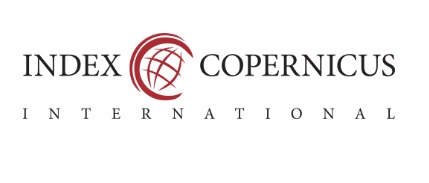Proactive professional networking strategies for enhancing teacher engagement in private school: Case study of Kraiumnuayvittaya army sponsor school
Abstract
Aim: The purpose of this research is to use the case study of Kraiumnuayvittaya Army Sponsor School to develop proactive professional networking strategies for increasing teacher engagement in private schools.
Methodology: Information was gathered from the school’s administrator, principal, school board members, and teachers through narrative inquiry and in-depth interviews for this phenomenological study.
Findings: Proactive professional networking strategies were found to consist of (1) problem joint strategies, (2) teacher leader strategies, and (3) expertise strategies, all of which were found to increase teacher engagement in private schools. To better understand how to most effectively influence effective teacher engagement in the private school, each strategy was examined through a research and development approach within a school year.
Novelty/Implications: This research’s discussed tactics were inspired by an apparent chasm between the school’s administration and its faculty. The study’s overarching goal was to shed light on how school board members, principals, and teachers at all levels perceive the school’s progress toward successfully implementing a change in teachers’ engagement.
References
Bridges, E., and Hallinger, P. 1995. Implementing Problem-Based Learning in Leadership Development. Eugene, OR: ERIC Clearinghouse.
Crumpton, M. A. 2012. “Talk About Change.” The Bottom Line 25(4): 140-142.
Davis, S. H., and Davis, P. B. 2003. The Intuitive Dimensions of Administrative Decision Making. Lanham, MD: Scarecrow Press.
Goldring, E., Huff, J., May, H., and Camburn, E. 2008. “School Context and Individual Characteristics: What Influences Principal Practice?” Journal of Educational Administration 46(3): 332-352.
Groysberg, B., and Slind, M. 2012. Talk, Inc.: How Trusted Leaders Use Conversation to Power Their Organizations. Boston, MA: Harvard Business School Press.
Hallinger, P. 2004. “Meeting the Challenges of Cultural Leadership: The Changing Role of Principals in Thailand.” Discourse: Studies in The Cultural Politics of Education 25(1): 61-73.
Hallinger, P., and Lee, M. 2011. “A Decade of Education Reform in Thailand: Broken Promise or Impossible Dream?” Cambridge Journal of Education 41(2): 139-158.
Heifetz, R., Grashow, A., and Linsky, M. 2009. “Leadership in a Permanent Crisis.” Harvard Business Review 87(7/8): 62-69.
IW:LEARN. 2014. “Causal Chain Analysis.” Retrieved June 30, 2016 (https://goo.gl/Uf6Jyu).
Kanauan, W., and Inprasitha, N. 2014. “Collaboration Between Inservice Teachers and Student Intern in Thai Lesson Study.” Procedia-Social and Behavioral Sciences 116: 28-32.
Kantamara, P., Hallinger, P., and Jatiket, M. 2006. “Scaling-Up Educational Reform in Thailand: Context, Collaboration, Networks, and Change.” Planning and Changing 37(1/2): 05-23.
Kotter, J. 1996. Leading Change. Boston, MA: Harvard Business School Press.
Manarungsan, S. 2015. “Our Philosophy Work-Based Education - Real Learning and Real Work.” Retrieved July 10, 2016 (https://goo.gl/WALNbT.
OECD. 2014. “Improving Schools in Wales: An OECD Perspective.” Paris, France: OECD Publishing. Available July 12, 2016 (https://goo.gl/UtZ4VH).
Sadik, F. 2016. “Investigating Primary School Teachers’ Views about their Classroom Management Behavior.”Journal of Advances in Humanities and Social Sciences 2(2): 76-84.
Suwanwong, A. 2016a. “Characteristics of Professional Learning Communities in Thai Educational Context.”Panyapiwat Journal 8(1): 163-175.
Suwanwong, A. 2016b. “Professional Learning Communities: Thai Educational Context.” Paper presented at the 21st IASTEM International Conference, May 19, Doha, Qatar.
Vesamavibool, S., Urwongse, S., Hanpanich, B., Thongnoum, D., and Watcharin, K. 2015. “The Comparative Study of Professional Standards for Thai Teachers and for ASEAN Teachers.” Procedia-Social and Behavioral Sciences 191: 2280-2284.
Wheelen, T. L., and Hunger, J. D. 2011. Concepts in Strategic Management and Business Policy. New Delhi, India: Pearson Education India.
Wisalaporn, S. 2005. “Regulation of the Teachers Council of Thailand on Professional Standards and Ethics.”Retrieved September 5, 2005 (https://goo.gl/Q1IPvd).
Yahya, M. S., Ismail, M. H., Salleh, M. F. M., and Abdullah, H. 2015. “Science Teachers’ Continuous Professional Development: Nature of In-Service Training and Its Implementation.” International Journal of Humanities, Arts and Social Sciences 1(1): 6-12.

This work is licensed under a Creative Commons Attribution-NonCommercial 4.0 International License.












.png)










